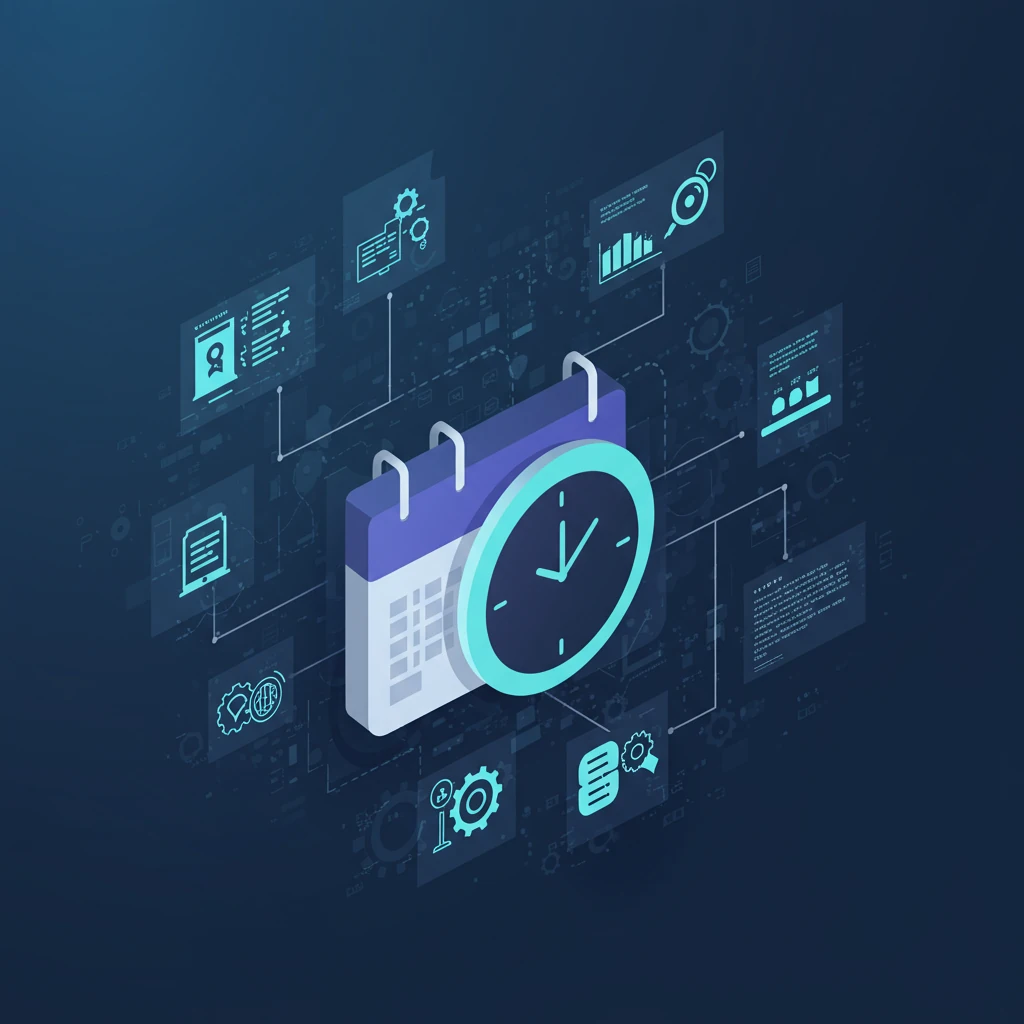In the fast-paced world of digital business, automation is not just a luxury—it's a necessity. From scheduled database backups to sending out daily newsletters, a vast number of critical tasks need to run consistently and on time. This is where the cron job comes in.
If you’ve ever wondered how developers handle these automated, time-based tasks, the answer often lies in the power of cron. But what exactly is a cron job, and how can a modern solution like CronFender elevate your automation strategy?
What is a Cron Job?
At its core, a cron job is a time-based job scheduler in Unix-like operating systems (such as Linux, macOS, and BSD). The name "cron" comes from the Greek word for time, chronos.
Think of a cron job as your personal, super-reliable digital assistant. You give it a set of instructions—a command or script to run—and a specific schedule, and it executes that task for you without fail. It's the engine that powers much of the routine maintenance and scheduled work on servers around the world.
The Anatomy of a Cron Expression
A cron job's schedule is defined by a simple yet powerful five-field syntax. Understanding this "cron expression" is key to mastering scheduled tasks.
* * * * * command_to_execute
Each asterisk represents a different time unit:
- Minute (0-59): The minute of the hour.
- Hour (0-23): The hour of the day.
- Day of Month (1-31): The day of the month.
- Month (1-12): The month of the year.
- Day of Week (0-7): The day of the week (Sunday is both 0 and 7).
Example: To run a backup script every day at 2:30 AM, your cron expression would look like this:
30 2 * * * /path/to/backup_script.sh
Common Use Cases for Cron Jobs
Cron jobs are incredibly versatile and are used for a wide range of essential tasks:
- Website Backups: Automatically backing up your database and files to prevent data loss.
- Sending Scheduled Emails: Managing recurring email campaigns, newsletters, or payment reminders.
- Server Maintenance: Deleting old log files, clearing cache, or rotating server logs to free up space.
- Data Synchronization: Syncing data between different databases or services at a specific interval.
- Generating Reports: Running daily, weekly, or monthly reports for business analytics.
The Challenges with Traditional Cron
While traditional cron jobs are powerful, they have limitations that can lead to headaches for developers and businesses:
- Lack of Visibility: If a cron job fails, you might not know about it until a critical issue arises. There's no centralized dashboard to monitor all your scheduled tasks.
- No Centralized Management: Managing cron jobs across multiple servers is a manual, error-prone process. It's difficult to keep track of what's running where.
- Single Point of Failure: If the server running your cron jobs goes down, all your scheduled tasks stop. There's no built-in redundancy.
- Security Risks: Cron files can be difficult to manage securely, and a single misconfiguration can have serious consequences.
The Solution: CronFender
This is where CronFender comes in as the definitive solution for modern cron scheduling. CronFender is a robust, cloud-based cron job scheduler that takes the hassle out of managing your automated tasks.
With CronFender, you can say goodbye to the limitations of traditional cron. Here’s how it helps:
- Centralized, User-Friendly Dashboard: Monitor all your cron jobs from a single, intuitive interface. See their status, execution history, and upcoming runs at a glance.
- Real-Time Failure Alerts: Get instant notifications via email, Slack, or other channels the moment a job fails or misses a scheduled run.
- Effortless Management: Easily create, edit, and manage your scheduled tasks without needing to touch a server's command line.
By moving your scheduled tasks to a dedicated service like CronFender, you free up your team to focus on building new features, confident that your automation is running reliably behind the scenes.
Conclusion
A cron job is the backbone of server-side automation, essential for keeping your digital operations running smoothly. While traditional cron provides the fundamental functionality, a modern cron scheduler like CronFender provides the monitoring, reliability, and ease of use that today's businesses demand.
If you're ready to upgrade your scheduled tasks and ensure they never fail silently again, it’s time to explore the power of CronFender.
